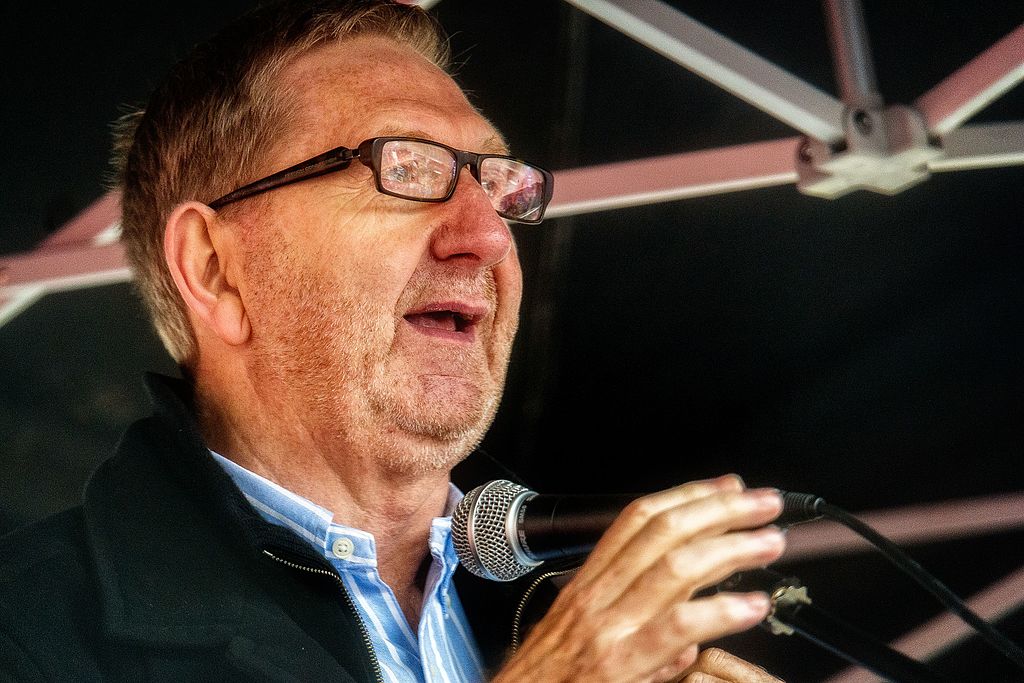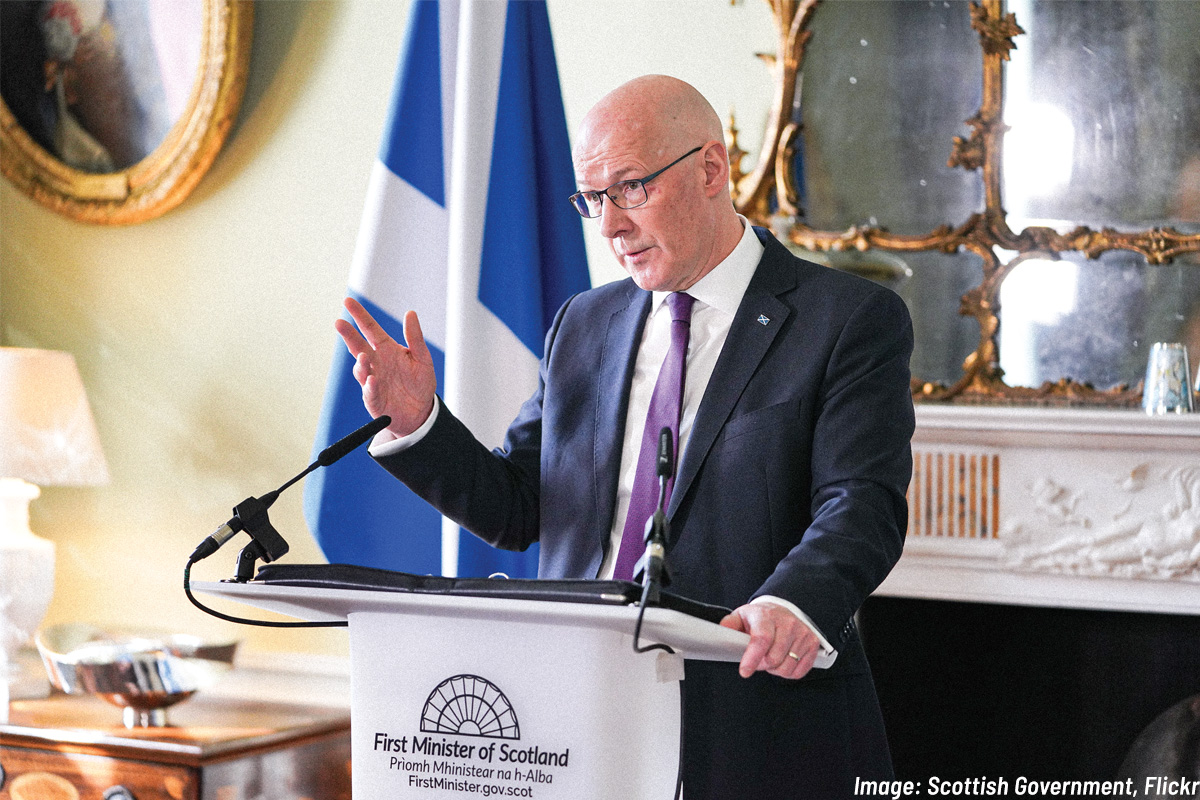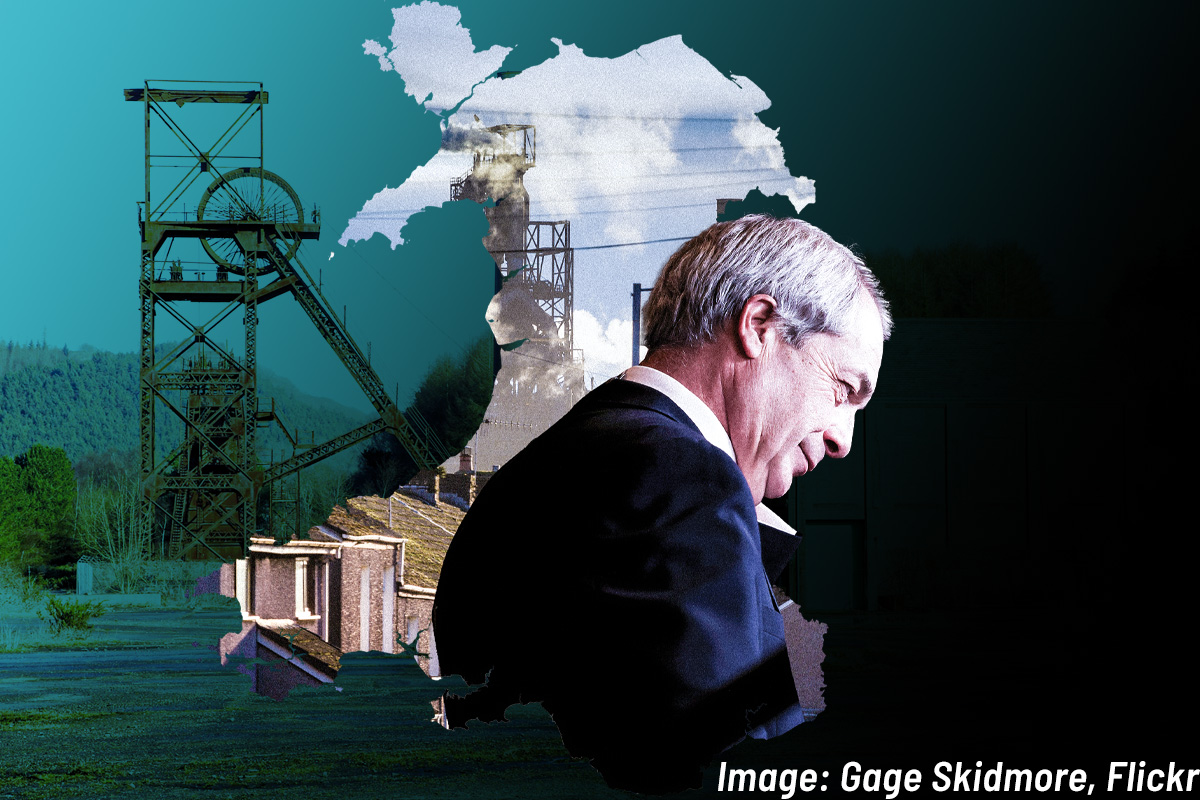The Blairites were in full retreat in Liverpool this week. By contrast, the confidence of the Corbyn movement was on display throughout: in the motions passed and in the militant speeches of left-wing MPs.
After a summer of being attacked and abused by the Blairites, this year’s Labour conference was an opportunity for the Corbyn movement to remind the Labour right wing who’s really in charge now.
And this is exactly what they did, both with the policies passed at conference, and with some notable comments from Jeremy Corbyn and John McDonnell which emphasised the party’s break with Blairism.
McDonnell, for example, endorsed the wording of the original Clause IV – a clause that was removed in 1995 to usher in the New Labour era, but which is now being raised once again throughout the labour movement as workers reject the disaster of privatisation and the failures of the market economy.
Corbyn, meanwhile, used his keynote speech to attack the bankers and financiers who had “been lauded for a generation”, but who had brought the economy “crashing to earth, with devastating consequences” a decade ago with the 2008 financial crisis.
“But instead of making essential changes to a broken economic system,” the Labour leader noted, “the political and corporate establishment strained every sinew to bail out and prop up the system that led to the crash in the first place”.
This was a clear swipe at the Blairites and their slavish adherence to the City of London and the interests of capitalism; a sharp reminder that Labour is no longer a party of big business, but a party “for the many, not the few”.
Demoralised and defeated
 Corbyn also used his speech to hold out an olive branch to his opponents, promising to “draw a line under…the row over anti-Semitism”, and asserting that Labour is now “united and ready to govern”.
Corbyn also used his speech to hold out an olive branch to his opponents, promising to “draw a line under…the row over anti-Semitism”, and asserting that Labour is now “united and ready to govern”.
In reality, however, these conciliatory remarks to his critics were the words of a man who knows that he is now firmly in the driving seat.
Indeed, the Blairites were notable at this year’s conference by their absence. Refreshingly, the tone was no longer being set by the establishment media or careerist MPs but by the Left. And on the conference floor, delegates voted on a number of issues to put the final nails into the coffin of the New Labour project.
Having spent the past few years endlessly slinging all manner of mud at Jeremy Corbyn, the Labour right wing is slowly realising that the game is up. This year’s conference would no doubt have left even the most ardent of the Blairite gangsters feeling demoralised and defeated.
As Laura Kunnsberg of the BBC (and a vocal Corbyn critic) correctly stated, “After three years of angst, with some MPs trying to remove him, Mr Corbyn – or his team – have almost total control over his party and its mechanisms.”
“Those Labour people who battled Corbyn and his enthusiastic supporters,” the BBC’s political editor commented, “are simply too tired of it right now to carry on”.
Rank-and-file radicalised

As we reported previously, this was most evident in the votes around key questions of party democracy – in particular on the demand for the mandatory reselection (or “open selection”) of MPs.
After enduring years of treacherous behaviour by right-wing Labour MPs, rank-and-file members are unsurprisingly – and overwhelming – in favour of bringing in mandatory reselection in order to kick out the Blairite saboteurs in the PLP.
But the debate around this demand has been consistently blocked by conservative union leaders, who are afraid of rocking the boat and losing their firm grip over the Party.
The split between affiliated union delegates and those representing local Labour parties, in this respect, was a key feature of this year’s conference.
Even after union votes on Sunday prevented mandatory reselection from being discussed at conference, for example, 60-65% of CLP delegates still rejected the proposals coming from the Labour National Executive Committee (NEC) limiting party members’ say in electing future Labour leaders and choosing parliamentary candidates.
Elsewhere, conference also saw affiliate delegates standing in the way of other important democratic reforms, such as removing the one-year delay on amendments to the party’s constitution.
Democratise the labour movement
 Facing criticism for his union’s role in blocking these much needed changes, Unite general secretary Len McCluskey has come out publicly in order to defend the maneuvering that led to mandatory reselection being swept off the table at this year’s conference.
Facing criticism for his union’s role in blocking these much needed changes, Unite general secretary Len McCluskey has come out publicly in order to defend the maneuvering that led to mandatory reselection being swept off the table at this year’s conference.
The substance of McCluskey’s defence, however, amounts to: “we opposed mandatory reselection because Jeremy doesn’t want it.”
Firstly, in response, we must note that we have only the Unite leader’s word that the limited changes passed are indeed what Jeremy wants.
But secondly, and more importantly, the whole point of all these democratic reforms should be to let the grassroots decide the direction of our movement. At the end of the day, it is the organised working class who should be the driving force of the Labour Party.
Nobody on the Left (other than some sectarians on the fringes of the movement) is attempting to maliciously drive a wedge between the trade unions and Labour members. Indeed, the Marxists in the Labour Party were the strongest defenders of the Labour-union link during the dark days of the Blair years.
But the reality is that there was a clear split between the votes of union delegates and those of CLP representatives at this year’s conference. And this situation needs to be resolved so that our movement is genuinely united moving forwards.
The only way to do this is to bring the energy of the transformative Corbyn movement into the trade unions; to democratise and reinvigorate the entire labour movement; and to ensure that the movement’s leadership at every level is fighting for the will and interests of the rank-and-file.
Militant mood

This was reflected this week in Liverpool: not only by the mood of optimism and confidence amongst delegates and attendees of the World Transformed fringe festival, but also – importantly – by the militant comments made by various left-wing Labour MPs who refused to stick to the script.
First up was Dawn Butler, the MP for Brent Central, who quickly incurred the wrath of Labour grandees for daring to praise the fighting spirit of the Liverpool Labour councillors in the 1980s, whose motto echoed that of George Lansbury and the Poplar rebellion: “it is better to break the law than break the poor.”
Next up was Chris Williamson MP, who has been an outspoken supporter of the need for open selection. As mentioned previously, Chris spoke passionately in favour of this demand at a fringe meeting over the weekend, but was later admonished by Len McCluskey for criticising the unions’ thwarting of attempts to introduce mandatory reselection.
Last, but by no means least, was Laura Smith, MP for Crewe and Nantwich, who received a standing ovation from the crowd at a World Transformed meeting after she called for a general strike to topple the Tories.
This demand clearly finds an echo amongst workers, who cannot tolerate one day more of this vicious Tory government. But for the Labour establishment, this call was most certainly a case of overstepping the mark.
Tom Watson, the deputy Labour leader, quickly poured water on the idea, suggesting that Smith had simply “got a little bit carried away” whilst speaking. Scandalously, the Machiavellian right-winger even went on to declare that the only previous general strike in British history (in 1926) had been an “absolute failure for the working class”.
Such attempts to restrain the militancy of the Corbyn movement, however, will not wash. What we are seeing is a new generation of MPs who are responding to the enormous pressures from below, giving a voice to the growing radicalisation of grassroots activists.
The only disappointment is that such militancy is not reflected across the entire PLP. This is why we need mandatory reselection – so that we have genuine class fighters, representing our movement and consistently making the case for bold socialist policies. If we did, the Tories would not survive one week.





